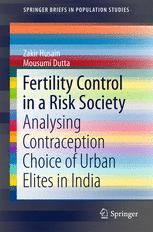

Most ebook files are in PDF format, so you can easily read them using various software such as Foxit Reader or directly on the Google Chrome browser.
Some ebook files are released by publishers in other formats such as .awz, .mobi, .epub, .fb2, etc. You may need to install specific software to read these formats on mobile/PC, such as Calibre.
Please read the tutorial at this link: https://ebookbell.com/faq
We offer FREE conversion to the popular formats you request; however, this may take some time. Therefore, right after payment, please email us, and we will try to provide the service as quickly as possible.
For some exceptional file formats or broken links (if any), please refrain from opening any disputes. Instead, email us first, and we will try to assist within a maximum of 6 hours.
EbookBell Team

0.0
0 reviewsThis book analyses the reasons for relying on behavioural contraception methods among urban ‘elites’ in India and examines their efficacy in controlling fertility. It also traces variations in contraception choice over the reproductive cycle of women.
Although researchers and policy makers generally equate reliance on behavioural contraceptive methods with low levels of education and awareness and lack of desire to control fertility, this perception has been questioned in recent years. The authors’ analysis of the first three rounds of the National Family Health Survey (NFHS) data in India reveals that behavioural contraceptive methods are popular in eastern India. Moreover, it is urban educated women who rely on behavioural methods, and are apparently able to regulate fertility quite effectively with such methods. NFHS data, however, has some limitations and this motivates the authors to explore birth control methods through primary surveys of currently married graduate women in Kolkata.
The use of behavioural contraception methods is a little researched area globally and this is the first book focusing on the topic in India.